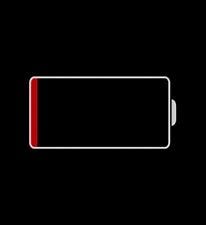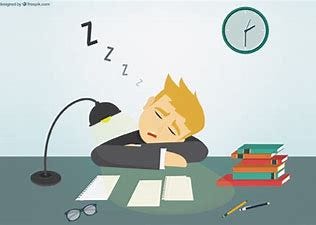Have you ever done work, or any intense task that requires a lot of focus, and just felt completely out of it? Maybe you can concentrate slightly, but your performance has completely plummeted to the point where you are certainly no longer productive.
Your ‘quality work: time spent ratio is off the charts — and not in a good sense.
This is what happens to me not just past 7:30pm, but in other parts of the day as well.
There’s nothing special about 7:30pm specifically as a time of day; just like how there’s nothing special about waking up at 5:30am in the morning to kickstart your ‘day of maximum productivity.’ There are no dogmatic rules in productivity that must be followed strictly to the letter, only general principles.
So, here are a couple of principles to help you truly maximize your productivity throughout the day — and in the days to come!
Reason #1: Peak Energy Time
I don’t do any work after 7:30pm because that’s when my energy is the lowest. After a day of studying and school, I’m beaten — and throw in a tough workout on top of that, and then a meal at around 6:30pm, I’m ready to call it a day!

If I tried to do any work after 7:30pm, it would just be a waste of time because I’d be putting more effort into trying to focus my eyes on the textbook than actually thinking up a solution to the problem.
Imagine a supermarket running on one checkout operator, with hundreds of customers waiting in line. Barely any customers are going to get through in the next hour or so. But get the whole crew in — an extra 30 operators? That’s when the customers are flying through!
Your energy availability is like the number of checkout operators at the supermarket! Stop trying to get the show speed-running at a time when you only have one checkout operator!

You need to find out when your time of peak energy is. This is the time when you are able to focus the most intensely and can get the most productive work done with the least amount of time. There might be several periods within the day!
Your peak energy time might be at (ironically enough) 7:30pm! Maybe that’s when you're the most productive! Perhaps your time of moderate energy is around 12pm.
Don’t try and argue with me by saying that ‘Peak Energy Time is All Day Baby!’ There are certain times of the day when you have more energy, and others when you don’t. For example, it’s typical to feel that ‘Afternoon slump’ due to our body’s natural circadian rhythm.
How to find your peak energy time

Make a small note of how you feel during each waking hour of the day.
Maybe you are a bit lethargic for the first hour of the day, say 7am because you just woke up. So jot that down.
But then you feel all ready to go at around 8am. So jot that down.
Maybe you feel that ‘Afternoon slump’ from 2–4pm. No, go for work there.
Suddenly, from 7:30pm onwards, you might actually feel relatively focused, and able to do at least some difficult work. Or you might be like me and just get even more tired. So jot that down.
Do this for at least a week or so (2 would be better) to make sure your results are consistent.
Allocating tasks according to Energy Availability

Do your toughest tasks when you have the most energy, and the moderately difficult tasks when you have some energy… you get the point!
Keep in mind that the energy that certain tasks expend is subjective. I might think responding to emails is easy because I barely have any. But for you, your inbox might be bombarded with complaints — so ‘responding to emails’ would actually be a task that should be allocated into your time of peak energy!
And don’t waste your time of peak energy by doing the tasks that you find easiest, like organizing your desk or copying and pasting images onto your laptop for your online database!
Things to keep in mind + Tips!
Here are some things to keep in mind, so that you can optimize your work schedule:
- Consistency in daily routine is essential; this will help maintain a consistent energy variability throughout the day (standardize your sleep schedule!)
- Your Peak Energy Time and Variability will likely change due to large changes in your environment; e.g if you change jobs, work shifts, have a baby
- Stimulants might impact your peak energy time; a hit of coffee might wake you up a bit

- You might feel rejuvenated or lethargic after a meal; pay attention to what your body is telling you!
- Rest periods of 30 minutes — 1 hour can potentiate another period of moderate-high energy!
Special Considerations for students
If you’re a student like me, you probably don’t have complete control over your daily schedule. I go to school Monday-Friday, but still, have weekend obligations to attend to. So what do you do?!
Well, if you have weekends mostly off, then you can do exactly what I’ve outlined.
If you have a daily class timetable that is so rigid, here are two solutions:
- Suck it up (half kidding here :D )
- Distribute your energy thoughtfully to your classes
Now, what do I mean by #2?
You might not have total control over your schedule, but you have control over your own focus and intent.
Here’s an example of roughly what I do.
I realize that I have more focus during the mornings, and a slump in the mid-afternoon, but I pick myself back up in the late afternoon, then quickly gets tired in the evening.
- Okay, so I go in with blazing intensity during those morning lectures/study periods.
- And I knowingly do something called ‘strategic slacking off’ a little bit in one of my afternoon classes. I don’t mean zone out, but I don’t burn myself into the ground like I did in the morning. This might just entail only doing the minimum necessary work in the period to get by, without falling behind.

- I know I will have a time of peak energy after I’ve ‘strategically slacked off’ a bit (naturally due to recovery mechanisms as well ) so I don’t have to feel bad about it
- I steamroll through some work in the late afternoon
- Chill time after 7:30pm!
I’d say a combination of 1. and 2. is the best solution. Suck it up, but vary your levels of focus depending on the time of day and classes. Make sure that one specific class/subject does not always get the ‘strategic slacking off’ part of your day.
But don’t make this an excuse to purposefully do badly in a class that you don’t like. I don’t want any raging emails from teachers.
Reason #2: Relaxation
With all these productivity hacks going around nowadays about optimizing the ratio of quality work done to time spent, many of us are on the teetering edge of burnout.
We are all human. We need all need breaks. And not just 5-minute ones that prepare us for another 30 minutes of work. I mean actually long, sufficient breaks.

I don’t do any work after 7:30 pm because that’s my chill time. I’ve accomplished all my hard-hitting difficult tasks throughout the day by using the principles of allocating energy accordingly, so I know I deserve a break! It’s the time when I can kick my feet up and watch hilarious Youtube videos, read books, and play the ‘Mortal Kombat’ theme song on my clarinet (it sounds epic for about a minute, trust me), or just lie on the couch.
I schedule this time to relax in order to optimize my productivity as well. I can barely focus then, so I ease my mind with this chill time and go to bed peacefully. In this way, I prepare myself for the next day’s early morning ‘Peak Energy Time’ — and I hit the road running again!
If you follow what I do, I’m sure you’re going to find some benefits. But even if you don’t do the whole 7:30pm chill time, make sure you schedule some time to relax. You deserve it.
What will you do after 7:30pm?
Now I’m not saying you shouldn’t do any work after 7:30pm. It’s a suggestion based on principles that I’ve outlined, and it’s what works for me.
What will work for you will depend on you, your life, and your schedule. Whether your peak energy time is truly before, or after, 7:30pm. And whether or not you want to schedule your chill time from 7:30pm onwards like me. The principles of ‘Peak Energy Time,’ allocating your work according to your energy availability, and making time to relax are exactly that — just principles, not hard and fast rules.

